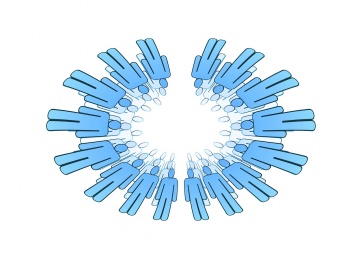Intercultural learning teams/Design blueprint
From WikiEducator
Contents
Metadata
- Level: Post-secondary
- Discipline: Adult education, online teamwork, learning facilitation, digital skills
- Learning hours: 40 to 50
- Credits: TBA
- Credential: TBA
- Hashtag: #ilt_dd
Intended target audience
This course is intended for existing or future educational practitioners, including:
- Instructors working in post-secondary education
- Trainers working in public service or corporate training sectors
- Adult educators working in the community development sector
- Pre-service instructors, trainers and adult educators
Pre-requisite knowledge
- Working knowledge of standard office applications, file management and web browsing skills
- Basic knowledge of how to create blog and microblog accounts
- Ability to use communication software applications, such as Google Docs, Skype, and wikis
- Working knowledge of adult learning facilitation approaches is recommended
Course aims
To develop and demonstrate:
- Team facilitation knowledge, skills and attitudes that support intercultural learning as well as practical task completion.
- Abilities to use social media and collaborative communication technologies effectively.
Learning Outcomes
When you complete this course you will be able to:
- Describe effective team facilitation practices.
- Differentiate cooperative and collaborative learning methods.
- Describe knowledge, skills and attitudes that support intercultural team learning.
- Apply cooperative, collaborative and culturally responsive team learning methods.
- Assess the efficacy of alternative learning methods in diverse team contexts.
- Use various social media and collaborative communication software applications.
- Develop team learning plans for your personal work or learning context.
Development and delivery approach
Repurpose elements from an online (Bb) Collaborative Team Learning course I designed, developed and taught at the University of Calgary from 2005-2007, and assemble appropriate existing OERs to practice the wiki course development skills presented in the DS4OER course. Online delivery method(s) and open technologies TBA as the course development evolves.
Assessment strategy
There are two assignments in this course:
- Course Team Project (Weight: 50%) – Publish a team project developed during the course and a critical reflection on your learning experience. A selection of team development topics will be provided. In the team projects, learners will be assessed on their application of team facilitation skills that support intercultural and topical learning, as well as practical task completion (30%). In critical reflections, learners will be assessed on the evidence of their own team contributions and their analysis of how their team project demonstrates support for both intercultural and topical learning (20%).
- Individual Team Learning Plan (Weight: 50%) – Publish a learning plan to address a team goal or issue in your personal work or learning context (30%); and a critical reflection on the approaches you selected, including how your plan can support intercultural learning, as well as address a practical goal or issue (20%).
Rubrics will be designed to support successful completion of assignments.
Interaction strategies
Student-content
- Each learning pathway will include:
- short independent study tutorials that include a text, graphic, audio and/or video orientation to each of the major topics or concepts.
- one or more e-learning activities to facilitate skill practice and support peer-to-peer learning.
- E-learning activities will be designed to support successful completion of assignment components.
- Learners will engage in authentic team development activities.
Student-student
Students will be able to interact with each other via various communication technologies, including:
- Microblog posts
- Discussion forum posts
- Personal blog posts and comments
Student-support
- Students will be encouraged to:
- share prior experiences, ideas, challenges, and materials that promote discussion and learning of course concepts and skills
- define personal learning goals, which may inform existing and future iterations of the course curriculum / materials
- support the development of a Question and Answer help forum
- Self-study help resources will be provided for the main technologies used in the course.
- Course facilitator(s) will provide encouragement and support via timeline signposts, formative and summative feedback, and e-moderation as needed.

